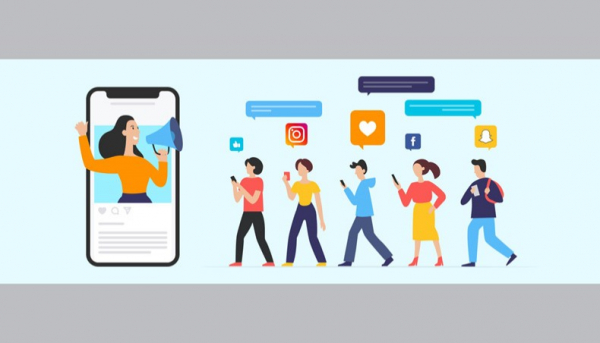India’s surging influencer marketing industry to hit ₹3,375 cr by 2026
The report says 71% of brands engage with influencers using a fixed fee model and 29% are exploring performance-linked models to enhance influencer accountabili
- by B2B Desk 2024-04-02 09:58:31
With the digital landscape evolving rapidly, the influencer marketing industry in India is poised for exponential growth. Recent forecasts indicate a significant increase, with three-quarters of brand strategies prioritizing influencer marketing as a pivotal component.
Anticipated to grow by 25% in 2024, reaching Rs 2,344 crore, this dynamic sector is expected to expand further soaring to Rs 3,375 crore by 2026.
According to a report by professional services network EY and Big Bang Social, the creative marketplace owned by talent management agency Collective Artists Network, 56% of brands have already invested more than 2% in influencer marketing, and 70% of brands plan to maintain their revenue. The influencer marketing budget is the same or increased in 2024, with half planning to increase it by up to 10%.
The report says 71% of brands engage with influencers using a fixed fee model and 29% are exploring performance-linked models to enhance influencer accountability. It also says that 77% of influencers reported growth in their income over the past two years, and 86% of influencers expect a more than 10% increase in their income over the next two years.

“Coupled with the projected growth in influencer marketing, it is clear that influencers are now defining an era of unprecedented awareness and influence while opening up enormous opportunities for brands and marketers,” Amiya Swarup, partner, marketing consultancy, EY India, said in a statement.
The growth of influencer marketing is anticipated to be driven by the lifestyle, fashion, and beauty categories. Sectors such as automotive, e-commerce, and consumer goods are expected to increase spending on influencer marketing the most.
“It is heartening to see brands are recognizing the potential of the creator economy and increasingly investing in influencer marketing, with sectors such as FMCG, automotive, and consumer durables leading the way,” said Vijay Subramaniam, Group CEO and founder, of Collective Artists Network said in a statement.
It was found that marketers must strike a strategic balance between mega or macro influencers to drive brand awareness and loyalty while harnessing the power of micro or nano influencers to drive engagement. Micro or nano-influencers often create content in regional languages and can be used to promote regional and niche brands.
Interestingly, nano-influencers had the highest engagement rate compared to other influencer categories, with 47% of brands preferring to lead influencer campaigns using micro- and micro-level influencers due to the lower cost per reach.
Also Read: March GST collection up 11.5% YoY at Rs 1.78 lakh cr, FY24 mop-up crosses Rs 20 lakh cr
POPULAR POSTS
Loan EMIs to Drop as RBI Slashes Repo Rate - Full MPC December 2025 Highlights
by Shan, 2025-12-05 11:49:44
Zoho Mail vs Gmail (2025): Which Email Platform Is Best for Businesses, Startups, and Students?
by Shan, 2025-10-09 12:17:26
PM Modi Launches GST Bachat Utsav: Lower Taxes, More Savings for Every Indian Household
by Shan, 2025-09-24 12:20:59
$100K H-1B Visa Fee Explained: Trump’s New Rule, Clarifications & Impact on Indian Tech Workers
by Shan, 2025-09-22 10:11:03
India-US Trade Deal Soon? Chief US Negotiator Arrives in Delhi as Talks Set to Begin Tomorrow
by Shan, 2025-09-15 11:54:28
Modi Meets Xi: Trump’s Tariffs, Strategic Autonomy, and the Future of Asia’s Power Balance
by Shan, 2025-09-03 06:40:06
Google Claims Gemini AI Uses Just ‘Five Drops of Water’ Per Prompt, Sparks Debate
by Shan, 2025-08-22 12:34:27
RECENTLY PUBLISHED

Pine Labs IPO 2025: Listing Date, Grey Market Premium, and Expert Outlook
- by Shan, 2025-11-05 09:57:07

The Agentic Revolution: Why Salesforce Is Betting Its Future on AI Agents
- by Shan, 2025-11-05 10:29:23

Top 10 Insurance Companies in India 2026: Life, Health, and General Insurance Leaders Explained
- by Shan, 2025-10-30 10:06:42

OpenAI Offers ChatGPT Go Free in India: What’s Behind This Big AI Giveaway?
- by Shan, 2025-10-28 12:19:11

Best Silver Investment Platforms for 2025: From CFDs to Digital Vaults Explained
- by Shan, 2025-10-23 12:22:46





 Subscribe now
Subscribe now 